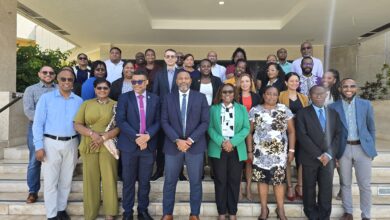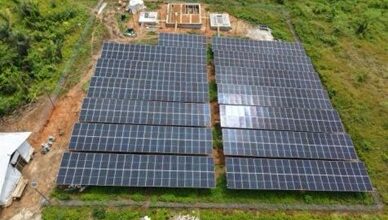At a meeting of the political dialogue between the parties thereto, the PPP/C has complained about what they have termed as Mr. Hoyte’s intemperate language in describing the process of the political dialogue as a farce during the course of a political meeting held at Victoria. I have had an opportunity to listen to a tape of part of that Meeting. I have had the tape transcribed. I have read and reread the transcript. Mr. Hoyte was rather caustic in his choice of language for criticising the dialogue, but he indicated and repeated that it was his view. He also made a number of criticisms against the Government of Guyana. Some of those criticisms relate to a number of matters which the Parties have submitted for consideration by the dialogue. Some relate also to the issue of Constitutional Reform. These issues, other than the issues of victimisation and discrimination have not yet been dealt with. The issue of victimisation and discrimination has been considered by the political dialogue and on 7 October 1998, agreement was reached in the following terms.
- Both Parties would look at and review existing and draft legislation which deal with victimisation and discrimination in sectoral areas.
- They will seek to improve such existing and draft legislation and add in a mechanism where necessary to deal with issues of victimisation and discrimination.
- Any such mechanism should provide for redress in the shortest possible time.
- Whenever possible the Parties will seek to group related issues.
- As a short-term mechanism the Parties will agree on representatives to deal with all issues of victimisation and discrimination at the bilateral level.
- Existence of this short-term mechanism is premised on the requirement that both the PPP/C and the PNC would each make a public pronouncement that the representatives identified to deal with the matters of victimisation and discrimination have the authority to make binding decisions.
It is now for the Parties to implement the terms of that agreement. I will not be drawn into publicly criticising the Leaders of Guyana’s two major political parties. To do so, will effectively prevent me from fulfilling the mandate assigned to me by CARICOM under my terms of reference. If either President Jagan or Mr. Hoyte is dissatisfied with the political dialogue, they have a duty so to inform the Chairman of CARICOM and if they wish bring the dialogue to an end. If I am satisfied that the dialogue is going nowhere, I, too, have a duty and a responsibility, so to inform the Chairman of CARICOM. I have not done so.
In relation to Mr. Hoyte’s criticisms of the policies of the Government, the people of Guyana are in a far better position than I am, to know whether his criticisms are true or not. If they are not true, it is appropriate and necessary that there be a direct rebuttal and a sharp political response from the Government. If they are true, he has a right, even a duty as a political leader to criticise. There is also a role for the press. Rather than regurgitating what may in some cases be characterised as pejorative and self-serving statements on either side in an adversarial political culture they should do impartial investigative work and ferret out the truth and inform the public of the whole truth and nothing but the truth,. That is part of the role of the press in a democracy. The constitutional right of freedom of expression and its corollary freedom of the press are essential elements of all true democracies.
One should not be unduly perturbed about criticism. To paraphrase and adapt the language of an eminent jurist made in relation to criticisms of the administration of justice in a Trinidad and Tobago case that went to the Privy Council the path of criticism is a public way, the wrong headed are permitted to err therein. There is no wrong done when one is genuinely exercising a right of criticism and not acting in malice. This process of political dialogue, like justice, is not a cloistered virtue. It must be allowed to suffer the scrutiny and respectful even though outspoken comments of ordinary persons.
The response to the criticisms made by Mr. Hoyte, or by any other person for that matter must be for the dialogue to produce results in a timely manner and so mute and invalidate criticisms that may be leveled against it.
The problems of Guyana, and there are many, have not developed overnight and they will not be solved overnight. The process of political dialogue has to be given a chance to work. It will call for patience, a genuine spirit of reconciliation, compromise and patriotism and the political will on all sides to achieve results that will enure to Guyana’s long-term benefit and produce an environment of peace, harmony, justice, reconciliation and true democracy. This is the only climate in which real progress and development can take place in Guyana.
Office of the CARICOM Facilitator
November 5, 1998





